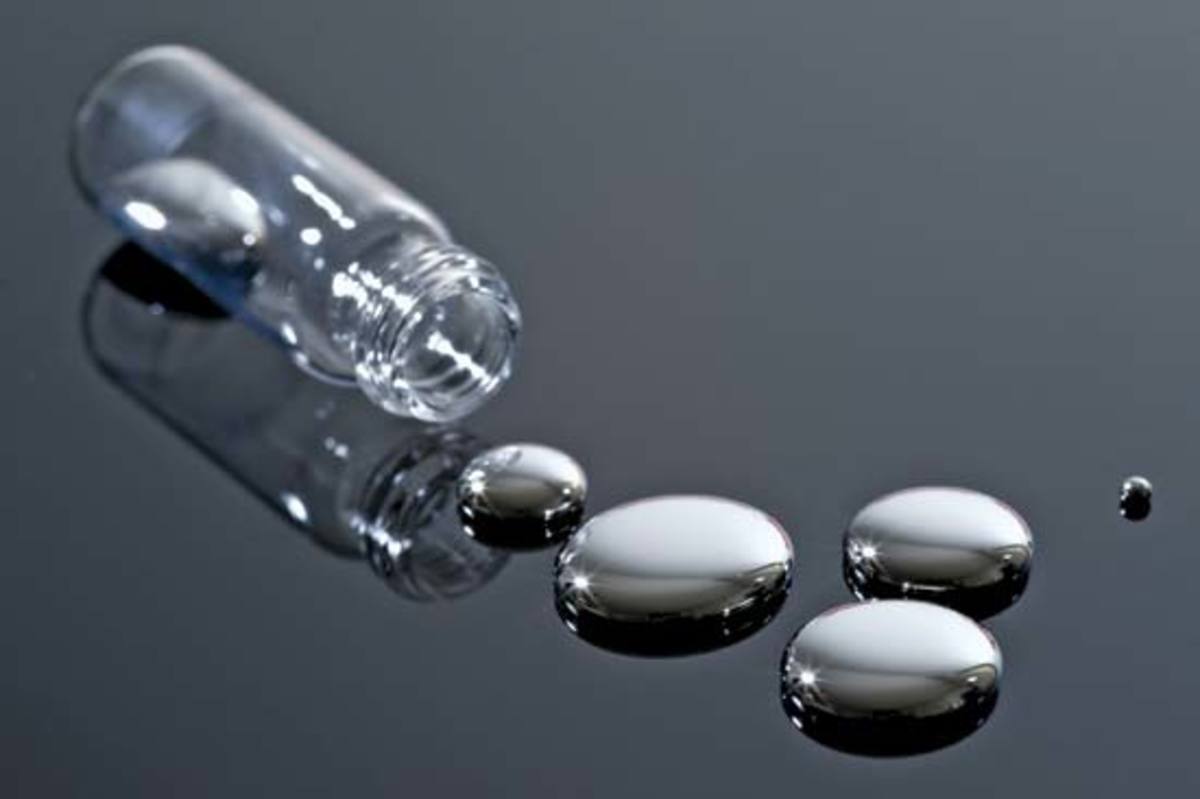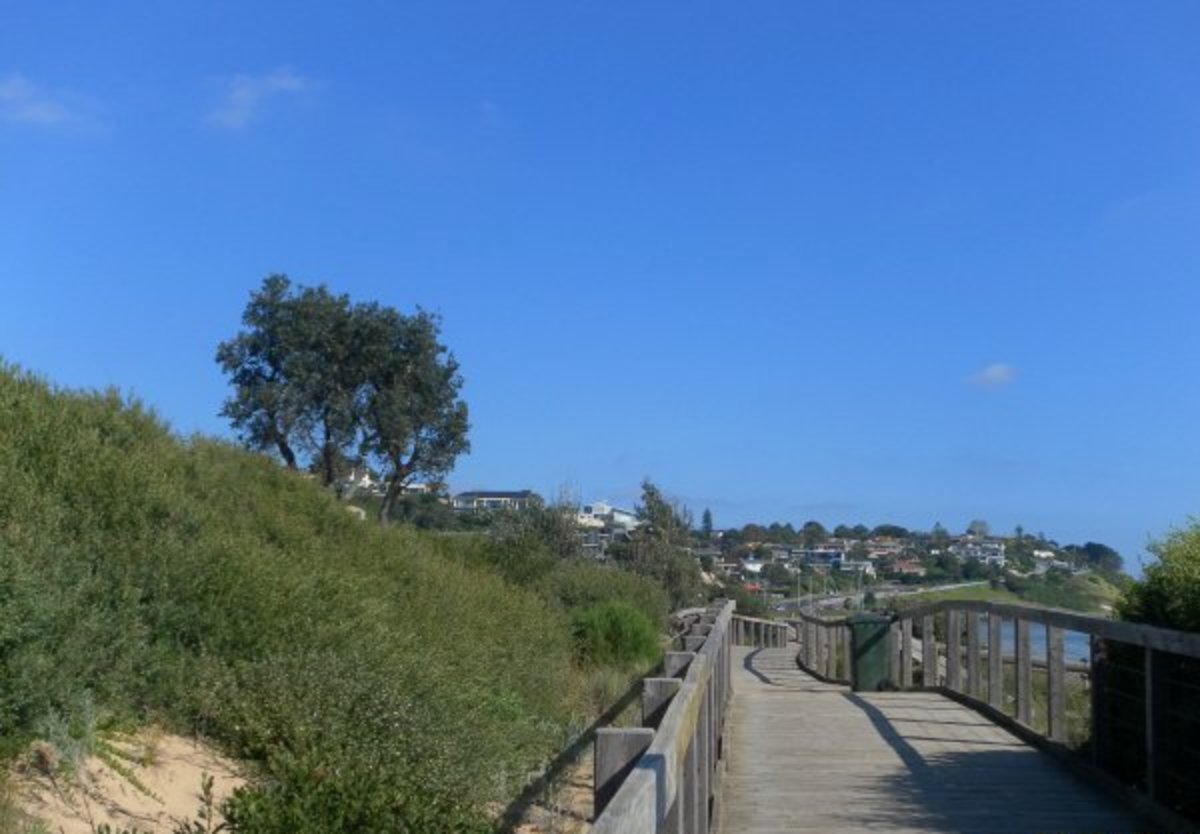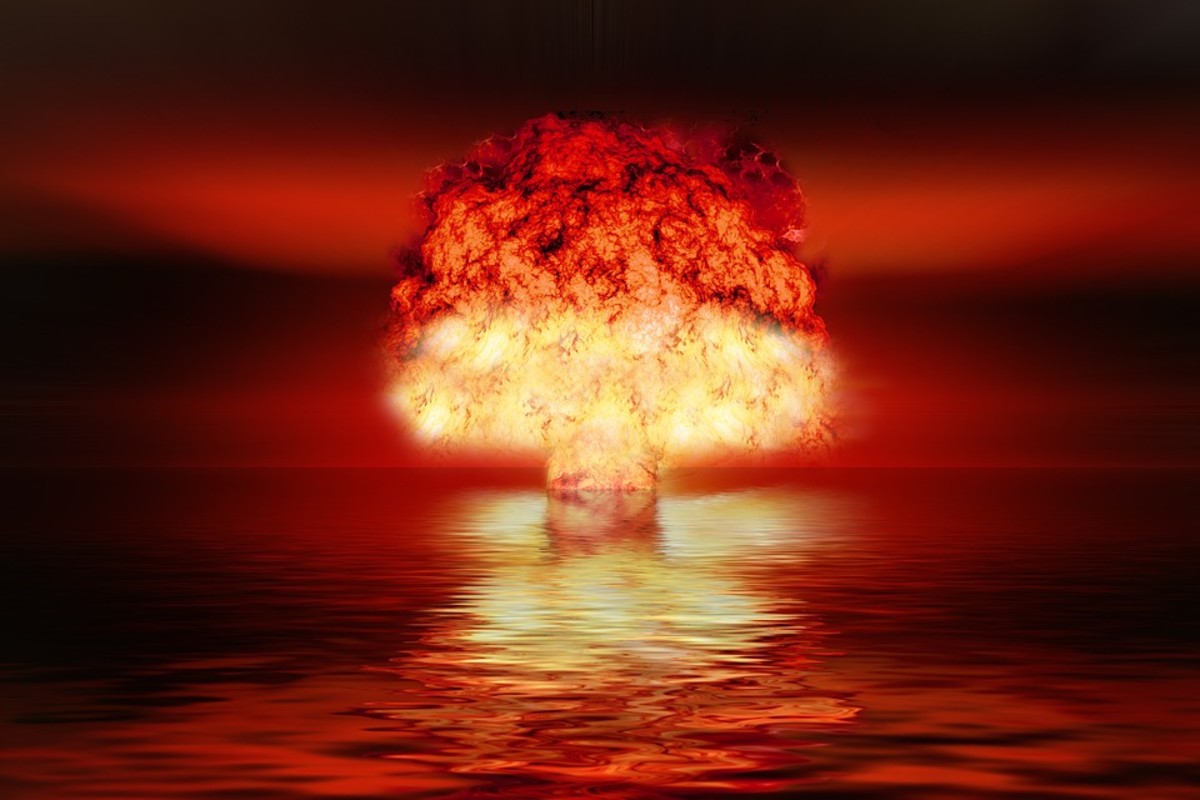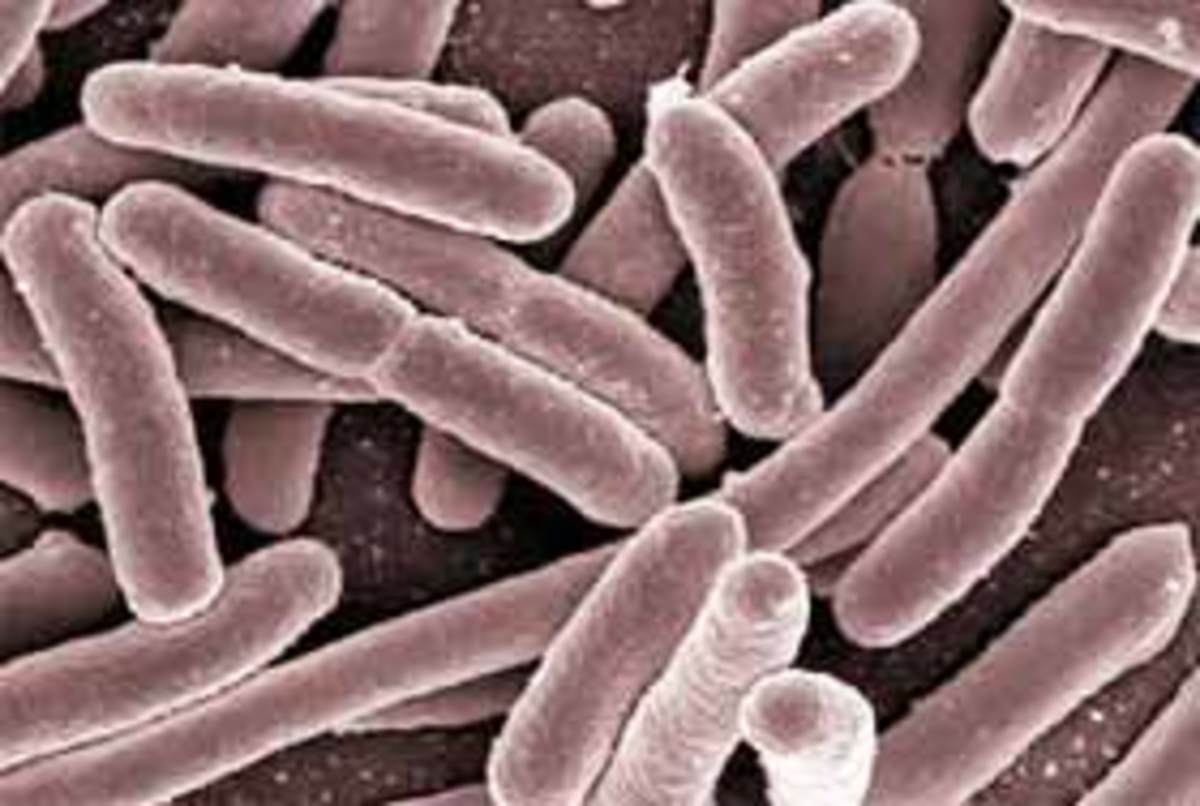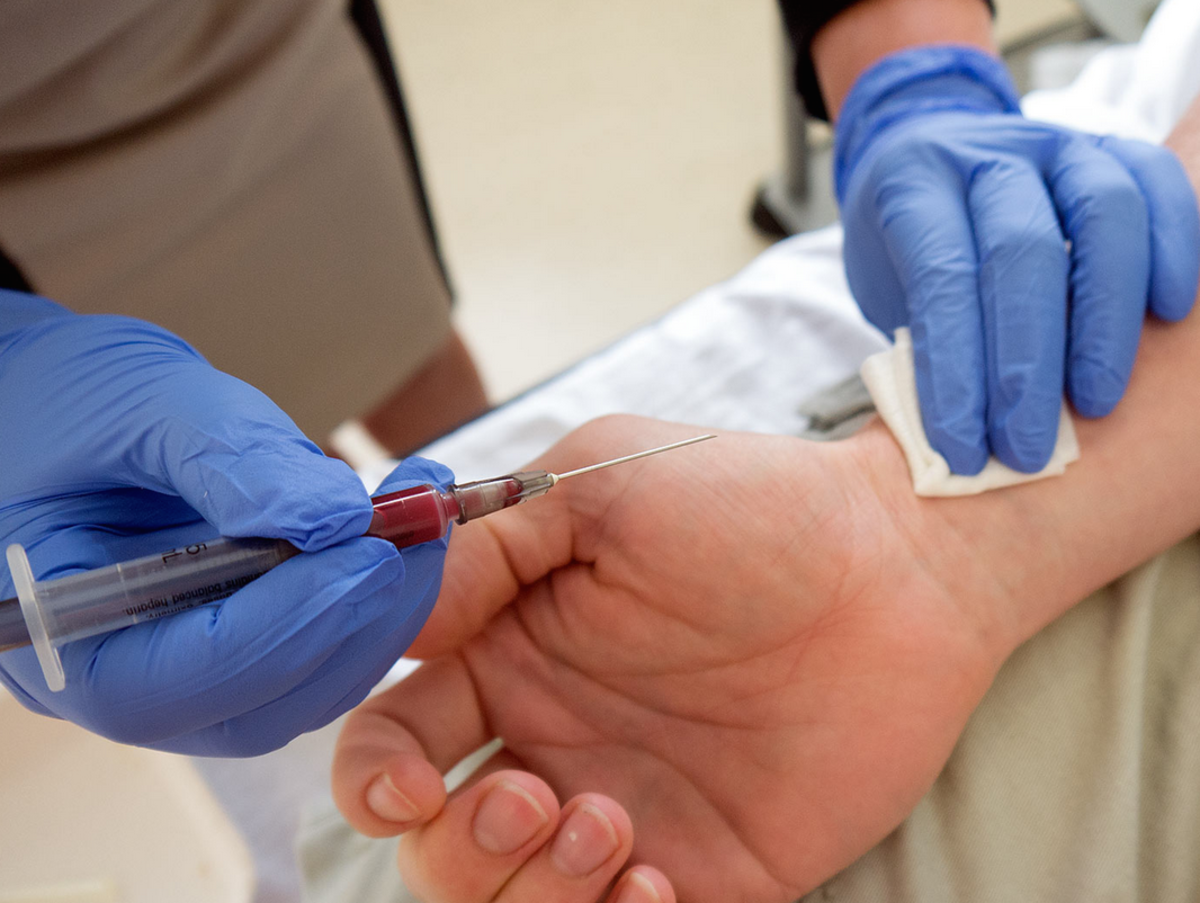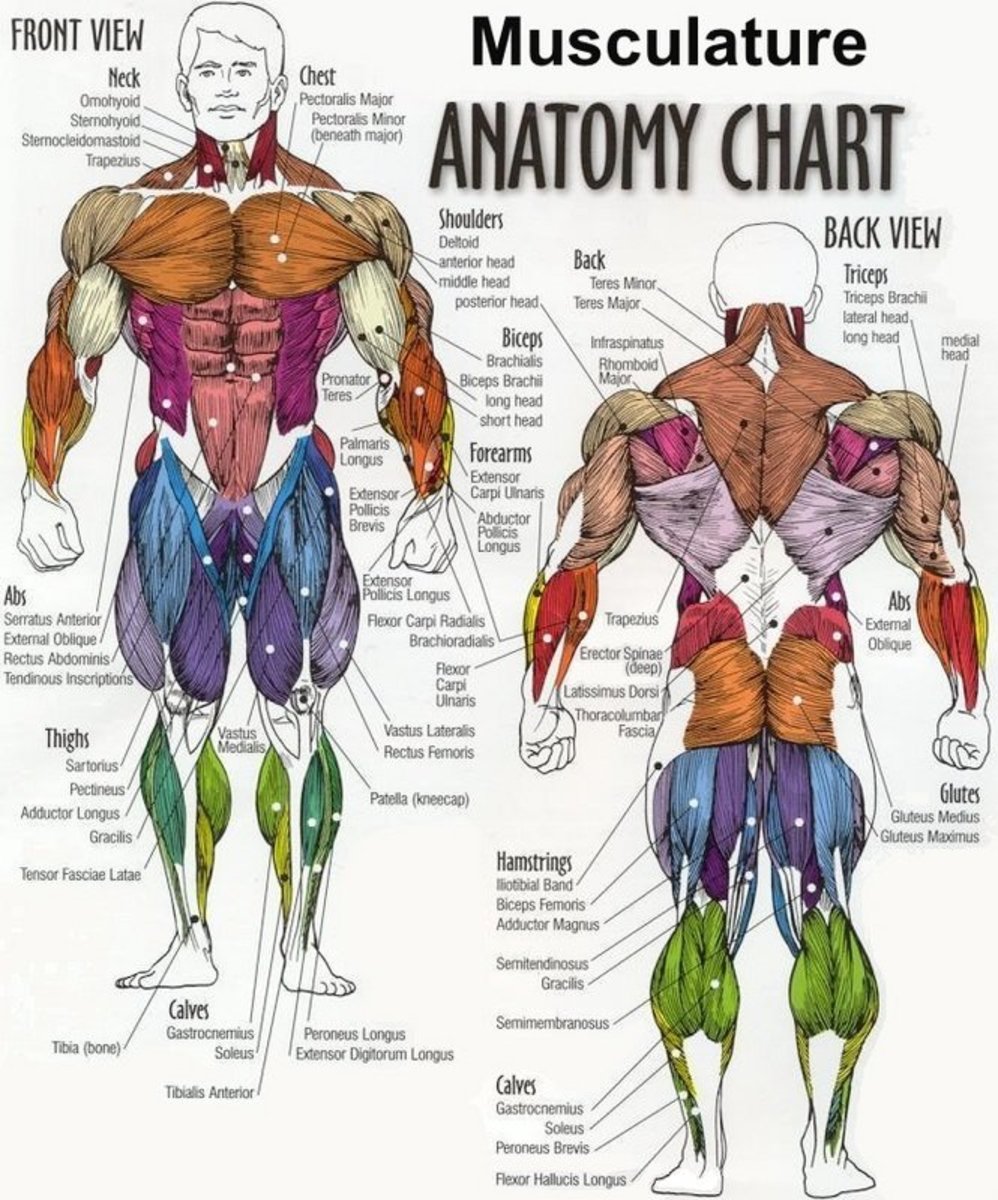Radiation Fallout FAQ
Introduction
This article is an attempt to answer some of the more important questions concerning radiation and exposure to radioactive particulates. The information provided herein is garnered from various professional, government and independent sources. It is believed to be accurate but may contain errors due to outdated or inaccurate source material.
Radiation Warning Symbol
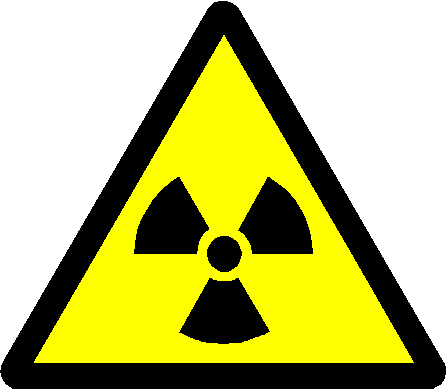
What is Radiation?
There are two kinds of radiation: Ionizing radiation and non-ionizing radiation.
The term ionizing means “to convert into an ion.” Ionizing radiation is electromagnetic energy or particles that are able to convert stable atoms into atoms that contain a positive or negative charge which enable them to react with other atoms. Non-ionizing radiation refers to electromagnetic energy which is insufficient for ionizing atoms.
What is Radioactive Fallout (radioactive plume or cloud)?
Radioactive fallout is dust that contains radioactive particles which can be potentially harmful to plants, animals and humans. It can taint both food and water supplies which might lead to a contaminated food chain.
Can Radiation Harm Me?
Many people believe that all radiation is harmful, which is a myth; in fact, many of the individuals exposing such things do so while projecting their claims over radio or television stations that emit powerful radiation which you receive on your home or car stereo (e.g. radio waves). All radiation is not harmful, but certain types and amounts of radiation can be harmful or even lethal; ionizing radiation is particularly harmful.
Radiation Fallout Shelter Symbol
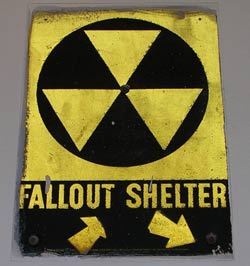
Can Radioactive Fallout Harm Me?
No amount of radioactive fallout is beneficial and it can cause adverse effects. The structure of the atmosphere and the source of radioactive fallout as well as weather patterns are all factors which will determine the potential hazards radioactive fallout may have on your local environment.
Precipitation falling from a radioactive cloud (fallout) is particularly troublesome as it will bring airborne radioactive particles to the ground where they can concentrate in certain areas. In general, the greater the rate and duration of precipitation, the more particulate matter will be brought to the ground.
You do not want to be downwind from the source of radioactive contamination, particularly during a rain or snowstorm!
How Much Ionizing Radiation is Harmful?
It is known that all ionizing radiation is harmful to living things. The exact effects are not known for low doses of ionizing radiation, but high doses of ionizing radiation can cause genetic mutation, sickness or death; however, exposure to ionizing radiation does not necessarily mean that any noticeable effects will ever manifest.
The United States Nuclear Regulatory Commission (NRC) guidelines state that the annual dosage for adults working with radioactive material may not exceed 5,000 mrem (50mSv). 5,000 mrem is equal to 5 rem, which is the maximum dosage allowed before radiation exposure is known to cause noticeable damage. The effects of radiation on the human body at various levels of exposure are listed below:
Note: 1Sv = 100rem = 1000mSv and 1mSv = 100mrem
5rem (50mSv) – 20rem (200mSv) possible late effects or chromosomal damage
20rem (200mSv) – 100rem (1Sv) temporary reduction in white blood cells
100rem (1Sv) – 200rem (2Sv) mild radiation sickness within a few hours: vomiting, diarrhea and fatigue, reduction in resistance to infection
200rem (2Sv) – 300rem (3Sv) serious radiation sickness and hemorrhage; kills 10-35% of the population after 30 days of exposure
300rem (3Sv) – 400rem (4Sv) serious radiation sickness, hemorrhage, bone marrow and intestine destruction; kills 50-70% of the population after 30 days of exposure
400rem (4Sv) – 1000rem (10Sv) acute illness and early death; kills 60-95% of the population after 30 days of exposure
1000rem (10Sv) – 5000rem (50Sv) acute illness and early death; kills 100% of the population after 10 days.
What is Radiation Poisoning?
There are two types of radiation poisoning known as Acute Radiation Syndrome (ARS) and Chronic Radiation Syndrome. Acute Radiation Syndrome is radiation sickness caused by a short exposure to radiation. Chronic Radiation Syndrome is caused by prolonged exposure to radiation. Radiation poisoning (radiation sickness) is damage caused to the body due to an excessive exposure to ionizing radiation; it is the temporary or permanent destruction or mutation of living cells within the body.
What Are The Symptoms of Radiation Poisoning?
The first symptoms of radiation poisoning usually occur anywhere from half an hour after exposure to a day or two after the initial exposure. Often, the amount of time it takes for the first symptoms to occur after the initial exposure can be used as an indicator of exactly how much radiation the individual has been exposed too, as symptoms will appear more quickly with higher doses of radiation. In more serious cases of radiation sickness, a time-period of up to two weeks may pass between the initial symptoms and the onset of more severe illness. Some of the more common symptoms are as follows:
Nausea
Vomiting (with blood)
Diarrhea (with blood)
Fever
Hair Loss
Increased Risk for Infection
Headache
Fatigue
Muscle Weakness
How Can I Protect Myself From Radiation?
The very best thing you can do to protect yourself from radiation sickness is to minimize your exposure to ionizing radiation; however, if a harmful exposure is suspected the following rules will always apply:
-
Increase your distance from the radiation as much as possible.
-
Shield yourself from the radiation by placing material between your body and the source of radiation. Just about any material will provide some protection, but in general the more dense the material (think "thick") the more protection it will offer. Also, consider wearing a respirator, as inhaling or ingesting radioactive particles is much worse than external exposure.
-
Reduce your time of exposure by using a combination of the first two rules.
-
Seek medical advice.
What Should I Do If I Suspect I Have Been Exposed To Radioactive Material?
-
If possible, remove yourself from the contaminated area. Remember distance, time and shielding.
-
Limit your contact with others.
-
Remove your clothing and shoes and place them in a sealed plastic bag.
-
Place the plastic bag out of the way.
-
Take a thorough shower.
-
Seek medical help and notify a medical professional that you may have been exposed to radiation.
Resources on Radiation
Will Radioactive Fallout Harm My Pets, Livestock, or Plants?
Yes. Animals can be effected by radiation in the same way that humans can be effected, and plants will also suffer damage due to radiation exposure. All pets and livestock should be moved into an enclosed location to protect them from radioactive particles, and plants and crops should be covered with a heavy plastic sheet or tarp if they are unable to be moved indoors.
Certain pets and livestock are more susceptible to radiation sickness than others. Cattle and sheep are especially susceptible while swine tend to be less susceptible. An effective strategy after the Chernobyl disaster was to feed pigs that had been exposed to cesium clean fodder for two months prior to slaughter, which allowed depletion of the absorbed compound to occur.
As a general rule, younger plants and animals are more sensitive to radiation than older plants and animals. Plants are probably more susceptible to radiation than animals, but it appears that seeds are fairly resistant to radiation and any seeds in storage will likely be unaffected.
What Will Radiation Do To Food and Water?
Depending on your location, the amount of radioactive particulates present in the environment, the type of radioisotopes, and various other factors food and water may or may not be fit for consumption. It is important that you do not ingest any food or water that you know is contaminated or that you suspect may have been contaminated, as ingesting or inhaling radioactive particulates can do more damage than external exposure. Extra precaution should be taken before consuming milk or milk products.
How Long Will Food and Water Be Contaminated?
Farmed foods and livestock will become safe for consumption relatively quickly in comparison to wild animals and vegetation. Depending on the dosage farmed plants and livestock may become safe within weeks or months while wild plants and animals may remain at unsafe consumption levels for many years.
Food and water stores not directly effected by fallout should be safe for consumption.
In emergency situations plants that are near harvest at the time of initial exposure may be thoroughly washed and eaten. In addition, animal muscle tissue would be considered the safest portion to use for a food source.
Water supplies will likely be safe for consumption within a very short period of time; however, closed bodies of water such as lakes and ponds may remain contaminated for years. Water that is contaminated can be decontaminated using ion-exchange and filtering processes.
What Will Radioactive Fallout Do To My Car and Other Outdoor Possessions?
Radioactive particles can contaminate your vehicle or other outdoor possessions. If you can do so without placing yourself into harm, and if time allows, you should move your vehicle and any other outdoor possessions into an enclosed location. If an enclosed location is not available, any vehicles should be covered with a properly secured tarp to prevent radioactive particles from falling into cracks and crevasses where they can not be easily washed away.
Pools and outdoor spas should be covered as well.
Prepare Before Disaster Strikes
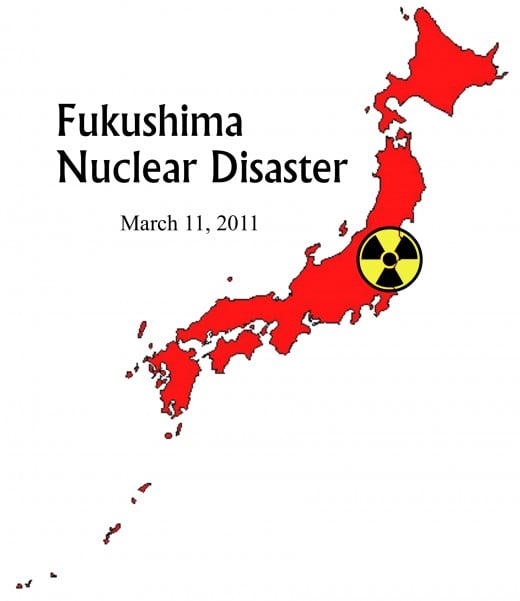
How Can I Prepare For Radioactive Fallout?
-
Educate yourself about radiation and radioactive fallout before a situation occurs.
-
Create an emergency plan.
-
Store enough food and water to last your entire family (pets too) several days or weeks in the event that food and water supplies become tainted.
-
Consider purchasing a backup power generator.
-
Purchase necessary supplies in advance (e.g. plastic sheeting, duct tape, respirator, etc.)
-
Visit Ready.gov or your state's Emergency Management Agency website.
What Are The Emergency Siren Codes for Radiation Fallout?
The United States Civil Defense siren code for a "fallout warning" will be loud pulsing or "short" tones eminating repeatedly for about 3 minutes, sometimes followed by a voice transmission. Longer tones with equal periods in between may also be used for this warning.
The "all clear" (ok) is one continuous tone eminated from the sirens.
References
The Effects on Populations of Exposure to Low Levels of Ionizing Radiation. Washington: National Academy of Sciences, National Research Council, 1972.
The Effects of Nuclear Weapons. Washington: United States Department of Defense and the United States Department of Energy, 1977.
Nuclear Arms Race: Technology and Society. Paul P. Craig and John A. Jungerman. New York: McGraw-Hill, 1990
Chernobyl's Legacy: Health, Environmental and Socio-economic Impacts. The U.N. Chernobyl Forum, 2006.
Radioactive Fallout Contamination of Food-producing Animals and Food Safety Considerations. Food Animal Residue Avoidance and Depletion Program Release, March 18, 2011.
Pennsylvania Emergency Preparedness Guide. Harrisburg: Pennsylvania Department of Health, 2007.
Know When Radiation Is Dangerous
Helpful Links
- FEMA | Federal Emergency Management Agency
- Department of Homeland Security | Preserving our Freedoms, Protecting America
- International Atomic Energy Agency (IAEA): Earthquake in Japan
- Centers for Disease Control and Prevention
- NRC: Nuclear Regulatory Commission
- US Environmental Protection Agency
- Food Animal Drug Residue Avoidance & Depletion - A component of the US Chemical Food Safety Prog
- The American Civil Defense Association



